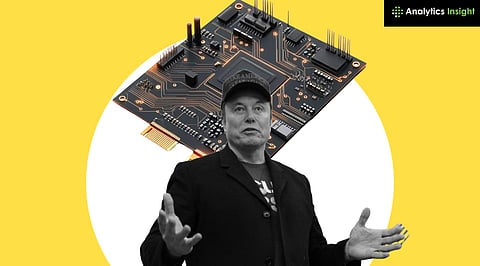

What’s New Today: Abeyta is calling attention to a new AI development and claims it’s going to be six times more powerful than Nvidia’s best-selling chips.
Fast-Track Insights: India emerged as the third-highest funded country globally amidst the slow investment progress problem globally.
Here’s a quick rundown of the biggest tech headlines making waves today. Let's dive into the day's top tech stories, from Abeyta developing a powerful superchip to the several recruitment positions in NPCC Limited.
Elon Musk’s upcoming AI Superchip, codenamed ‘Blackwell Killer,’ is reportedly set for an August 1, 2025 reveal, according to Wall Street veteran Will Meade. Positioned as a direct competitor to Nvidia’s Blackwell chip, this development aims to revolutionize AI processing power. The announcement has already sparked strong investor anticipation, highlighting Musk’s growing influence in the AI hardware market.
India has emerged as the third-largest destination for tech startup funding in 2024, following the US and the UK. Bengaluru led the country with the highest number of funded startups, followed by Mumbai and Delhi-NCR. Despite a global funding slowdown, India raised US$7 billion, focusing on early-stage deals. The report highlights strong investor confidence in India’s innovation ecosystem.
NPCC Limited is inviting applications for the Senior Associate (Office Support-Law) position on a contractual basis for one year, extendable as needed. Candidates must hold an LLB degree with at least 50% marks and have a minimum of two years of relevant experience. The application deadline is July 3, 2025. Detailed eligibility criteria and application procedures are available on NPCC's official website.
Artificial intelligence in 2025 is an integral part of daily life, powering applications from social media algorithms to voice assistants and recommendation engines. Beginners should build a foundation in mathematics, programming (especially Python), and data structures. Progressing through machine learning concepts, hands-on projects, and continual learning ensures practical skills and adaptability in this rapidly evolving field.
Google’s quantum computing advancements are raising concerns over Bitcoin’s cryptographic security. A NYDIG report highlights that Google’s latest quantum system reached 70 qubits with improved error correction, inching closer to potentially breaking Bitcoin’s SHA-256 encryption. While still years away, the progress underlines a growing urgency for Bitcoin developers to adopt quantum-resistant algorithms to safeguard future network integrity.
